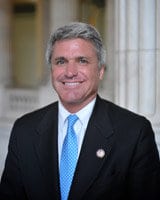
Chairman of the House Homeland Security Committee Michael McCaul (R-Texas) on Wednesday called for militarizing the nation’s southern border with more manpower, technology and a longer wall, saying that under the incoming Trump administration a “historic” defense system will be used to create total control of the border.On “day one” under Trump, the new president should announce an “immediate border security surge,” McCaul said at the Heritage Foundation in a speech billed the State of Homeland Security. He said he…

 By
By 











